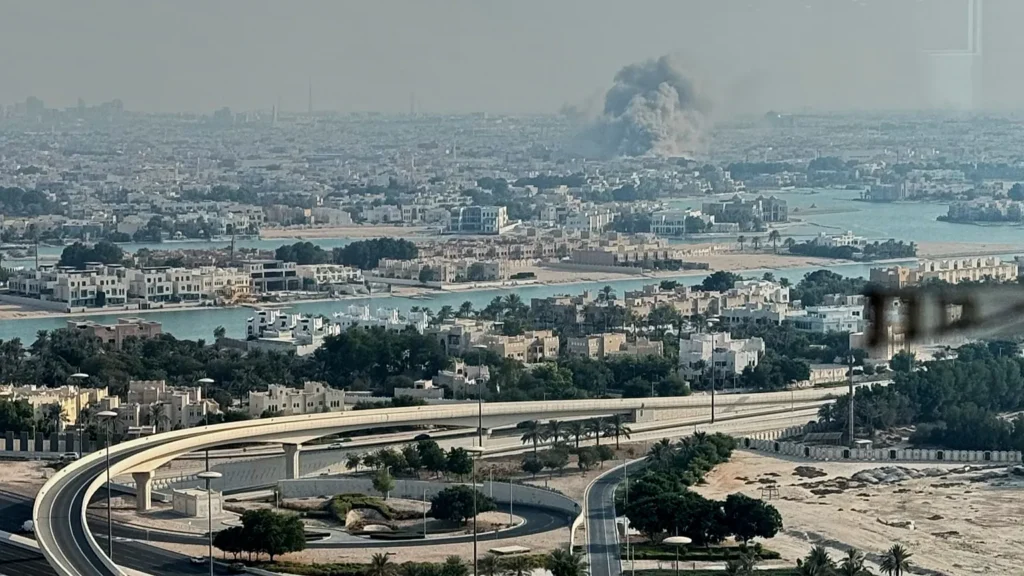The Israeli airstrike on Qatar’s capital this September has shocked the foundations of Middle Eastern diplomacy and global security. For years, Qatar has been considered a safe zone for negotiation, a linchpin of Western strategic partnerships, and a regional outlier in terms of wealth and influence. The targeting of Hamas leadership by Israeli jets, executed while peace talks were underway, has not only breached Qatar’s sovereignty but threatens to shift global power dynamics, undermine diplomatic norms, and ignite fresh instability across the region.
Qatar’s Strategic Place: Riches and Vulnerability
Despite ranking among the world’s richest economies, with a GDP per capita over $120,000 and hosting the largest U.S. military base outside the continent, Qatar finds its defenses compromised. The nation’s armed forces number just over 16,500 active personnel and rely heavily on advanced Western-supplied technology, including F-15QA fighters and PAC-3 missile systems. Deterrence comes not from sheer military power, but through exhaustive defense partnerships with the United States, France, the UK, and Turkey, each providing layers of strategic assurance and complicating Israel’s calculus for attack.
Yet, the recent strike exposed the paradox of the country’s security: immense wealth and partnerships offer no guarantee against targeted aggression when regional ambitions overrule protocol. Al Udeid Air Base, the cornerstone of U.S. Central Command operations, proved to be no shield, raising urgent questions about the credibility of modern alliance structures.
Diplomacy Undermined: The Cost of Blatant Aggression
The Israeli operation targeted not just people but the principle of diplomatic negotiation itself. Hamas’ political office in Qatar was established with Western blessing, serving as a venue for indirect communication and mediation, even as Qatar resisted normalization with Israel. Strike timing was unequivocally disruptive: it occurred at the height of a new round of U.S.-brokered ceasefire talks for Gaza, essentially demolishing months of negotiation and goodwill.
Officials worldwide have condemned the attack as a “flagrant violation” of international law and Qatari territorial integrity, with the United Nations, Arab League, and European leaders demanding accountability. The selective use of force not only kills truce hopes but sets a dangerous precedent, turning diplomatic spaces into battlefield targets and eroding the global rules that underpin peace and dialogue.
A New Order: Netanyahu’s Exercise of Power
Most provocative is the demonstration of Israeli Prime Minister Netanyahu’s autonomy from American oversight. Despite President Trump’s disclaimer that the operation was conducted without U.S. approval and “does not advance Israel or America’s goals,” Netanyahu pressed forward, risking not just regional condemnation but a fundamental realignment of power.
For years, the U.S. projected dominance as the Middle East’s chief negotiator and power-broker. Now, with Trump seemingly sidelined and unable to rein in Israel’s tactical imperatives, the perception of American supremacy has been deeply shaken. Netanyahu has positioned himself at the epicenter of regional decision-making, his willingness to override U.S. diplomatic efforts marking a clear, if troubling, inversion of the traditional power relationship.
Counterpoint: Why Was Qatar Unable to Defend Itself?
Some critics will argue that Qatar’s inability to intercept or prevent the strike, despite vast resources and alliances, undermines its claim to strategic significance. The Peninsula Shield Force, established as the GCC’s collective defense mechanism, remains hamstrung by consensus politics and operational inertia, failing to mount a meaningful response.
Notably, Qatar’s reliance on foreign troops, including over 3,000 Turkish personnel and an extensive Western military presence, showcases the fragility of regional defense arrangements. In reality, such forces are designed to prevent Gulf adversarial interventions, but when the aggressor is Israel, the calculus fundamentally changes. Unlike direct intra-Gulf threats, attacks from external powers are mired in diplomatic complexity, rendering defense involvement nearly inert during moments of crisis.
Escalation and the Regional Chessboard
The strike on Qatar is not an isolated event. Israel has been conducting simultaneous multi-front operations across Syria, Lebanon, and Gaza, targeting Iranian proxies and attempting to reset the regional balance of power. The Qatar attack thus forms part of a broader, more aggressive strategy, signaling the potential for future strikes, whether in Iraq, Yemen, or other states entwined within Iran’s proxy network.
Such escalation strategies reflect not a technical military surge but calculated attempts to overwhelm adversaries, silence diplomatic mediators, and preserve domestic political coalitions back home. The consequence is increasing volatility and the risk of a region-wide conflict for which no state, not even Qatar with all its resources, appears entirely prepared.
Global Response: Condemnation and Strategic Uncertainty
The international response has been swift and categorical. Saudi Arabia, Turkey, the UAE, the UK, France, Pakistan, and many others have each decried the strike as “cowardly,” “brutal,” and a “dangerous escalation”. The depth of Western partnerships with Qatar amplifies the costs for Israel, threatening to undermine years of defense and trade cooperation.
International organizations, including the UN Security Council, face profound pressure to act decisively. Failure to impose meaningful consequences could establish a precedent for future attacks, further eroding international law and the practical protections it is meant to afford, even to the richest and most interconnected of states.
Conclusion: Qatar’s Sovereignty and the Test of Global Order
The Israeli strike on Qatar represents a watershed moment, one that threatens not just a single state but the foundational principles of sovereignty, alliance, and diplomatic immunity everywhere. As the dust settles, the world must recognize that mere wealth and alliances are insufficient safeguards against impunity driven by ambition and political survival. The response to this attack will either restore global faith in the rules governing nations or embolden a new age of unilateralism where power is unconstrained by principle.
For Qatar, for its allies, and for the global community at large, this is a test not simply of military might but of the willingness to stand for law, order, and sovereign dignity. The choices made now will shape the region and the meaning of global security for a generation.


